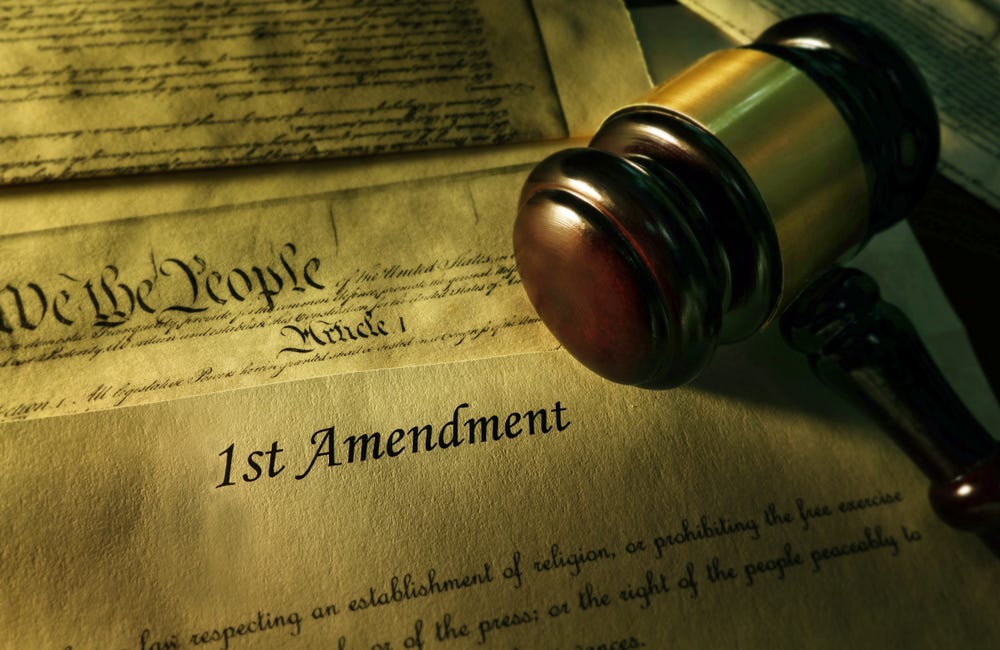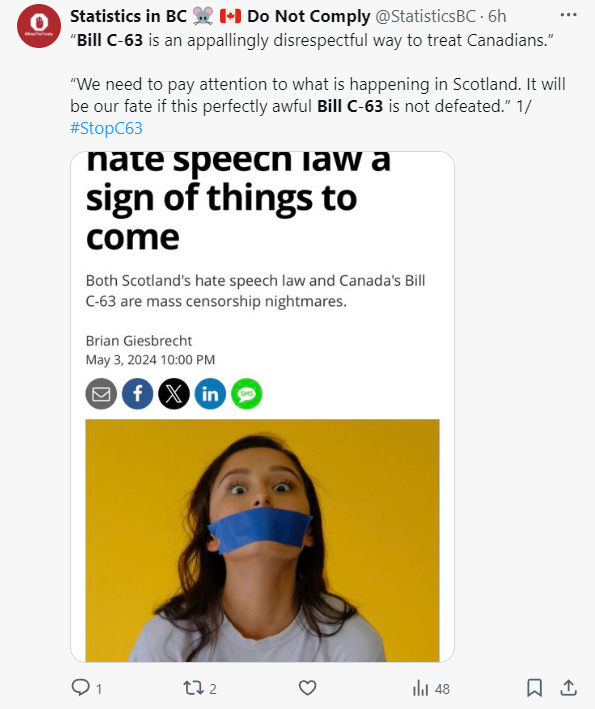How to Raise an (Optimistic) American, Part 6
"The proof is in the pudding."
[This is the sixth of an 8-part series. Read Parts One, Two, Three, Four, and Five concern what makes the U.S. system special. We’ll be posting updates to the series throughout 2024.]
The sixth of America’s eight foundations is how we communicate. In our public discourse, we commit to the principle of free speech, rely on the marketplace of ideas, and prioritize logic and reason.
Americans have the strongest free speech protections in the world. There are historical and cultural reasons for this, and it’s part of the reason why our culture is so prolific and groundbreaking. While free speech carries certain costs, we believe that the benefits far outweigh them and that American citizens are strong enough to bear up against the open, honest, forthright, and robust exchange of contrasting ideas—especially since each American has the First Amendment right to reply and to refute bad ideas (while a censored person has no recourse). Censorship societies inevitably stagnate and choke creative output and stall progress and human advancement.
We allow people to think out loud and say what they think, and most American regions are noted for their plain-spokenness (although there are exceptions). We also have a strong tradition of allowing satirists and other social commentators to poke fun at our foibles and to point out our flaws, which is one of the most useful purposes of free speech. Free speech allows the powerless to confront the powerful and to voice grievances or criticisms.
Our Enlightenment traditions and Western origins (rooted in Greek logic and philosophy) have equipped us with a reliable method of interrogating and discovering truth and discarding error. Boiled down to its basics, this process is similar to the scientific method in that it asserts that we must follow a rational process utilizing logic and evidence and ruthlessly submit it to outside scrutiny in order to ascertain if there are any flaws. To use the development of vaccines as a ready example, the process basically proceeds from the null hypothesis.
It’s counterintuitive in that you try to prove that solutions don’t work...until you can’t. So, you produce a vaccine possibility and submit it to peer review. Try this: it’s probably wrong and probably doesn’t work. You test it, you interrogate it, and most of the time, you find out that indeed it doesn’t work. And you keep doing it until you find one that you can’t prove doesn’t work. The process requires everyone to be supplying criticism, checking closely for errors, and honestly and faithfully recording their observations and experiences. It’s similar to the way in which computer programmers try to “break” another’s code, in order to find the flaws in it. You keep testing it until you find a solution that can’t be broken.
Now, imagine trying that in a system where certain solutions are deemed to be “unquestionable” because of the source. How dare you try to break my code; don’t you know who I am? Does that sound like a system likely to lead to the most reliable solutions?
Similar to a courtroom proceeding, each possible solution must be subjected to rigorous cross-examination in order to ascertain what is true or right. This requires being dispassionately objective about anyone’s work, because if it is flawed, it needs to be discovered, discarded, and replaced with a better solution. Irrational attachments produce solutions that are likely to break down under actual conditions. Other terms for this are deductive reasoning, open inquiry, peer review, and the scientific process. We don’t work backwards from preferred conclusions or outcomes: we proceed forward, logically following the evidence where it leads us, asking tough questions all along the way.
Antithetical systems would be Lysenkoism, Welteislehre, working backwards from conclusions, unquestioned advocacy, reliance on faulty induction, might makes right, accepting unfalsifiable claims (Karl Popper), orthodoxy, or party rule.
Foundational Reading: The First Amendment to the U.S. Constitution. Jonathan Rauch, Kindly Inquisitors, Selections from Aristotle and Plato. Study of Logic. Galileo in Rome. Hans Christian Andersen, The Emperor’s New Clothes, A Plea for Freedom of Speech in Boston by Frederick Douglass. Films: The Story of Louis Pasteur, Lorenzo’s Oil.
[This is the sixth of an 8-part series. We’ll be posting new updates to the series throughout 2024.]




I love that you included "The Emperor's New Clothes" as foundational reading! Absolutely!